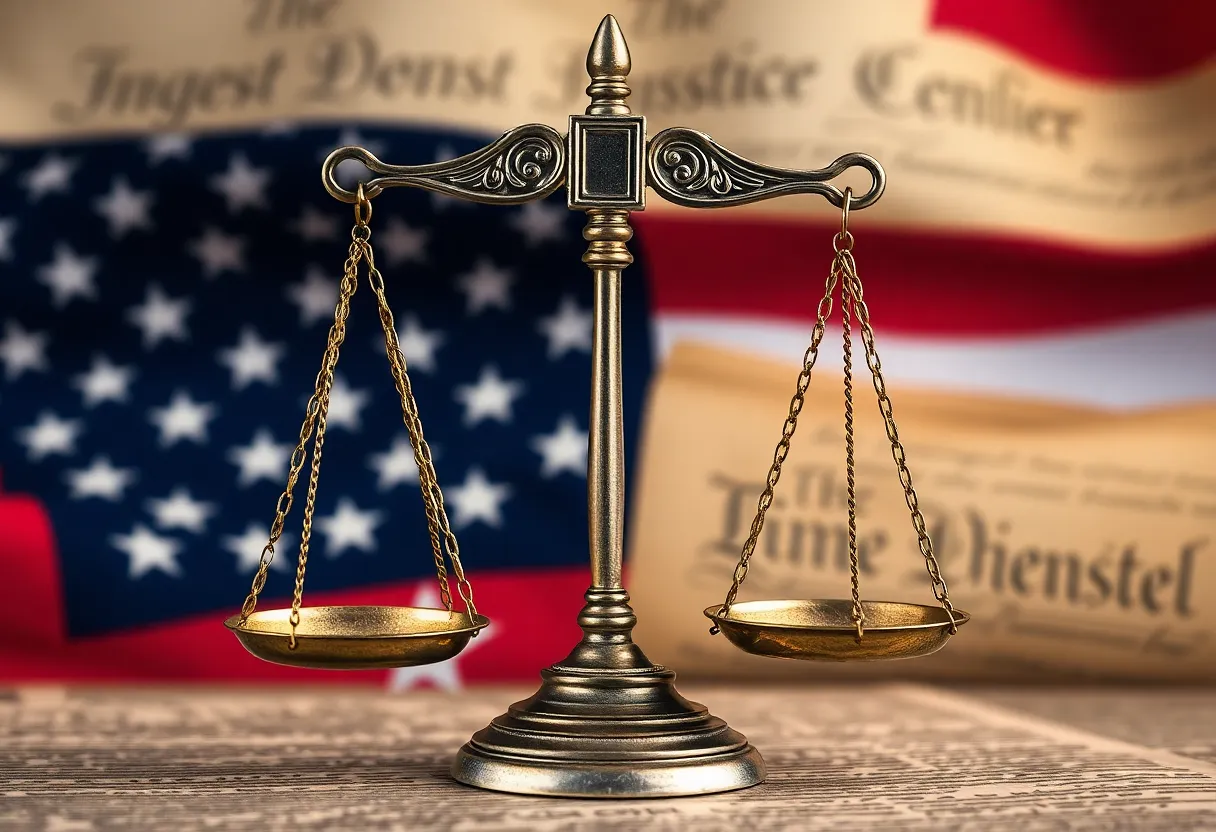

Justice and Citizenship
Want to target the right audience? Sponsor our site and choose your specific industry to connect with a relevant audience.
Prominent brand mentions across targeted, industry-focused articles
High-visibility placements that speak directly to an engaged local audience
Guaranteed coverage that maximizes exposure and reinforces your brand presence
Interested in seeing what sponsored content looks like on our platform?
May’s Roofing & Contracting
Forwal Construction
NSC Clips
Real Internet Sales
Suited
Florida4Golf
Click the button below to sponsor our articles:
Sponsor Our ArticlesA federal judge in Seattle has issued a 14-day temporary restraining order against President Trump’s executive order that sought to revoke birthright citizenship for children born in the U.S. to noncitizen parents. The ruling stems from a lawsuit by a coalition of states, which argues that the order is unconstitutional. The judge criticized the legality of the order, which could impact approximately 153,000 children born each year. The Trump administration is likely to appeal the decision, as the debate on citizenship continues to unfold.
In a significant legal decision, a federal judge in Seattle has slapped a 14-day temporary restraining order on President Trump’s executive order aimed at revoking birthright citizenship for children born in the U.S. to undocumented immigrants and foreign visitors. This development comes as a big relief for many, as the order was set to take effect in mid-February.
U.S. District Judge John C. Coughenour did not hold back when he called the executive order blatantly unconstitutional. The ruling applies nationwide and was the result of a lawsuit initiated by a coalition of states, including Washington, Arizona, Illinois, and Oregon. During the hearing, Coughenour expressed skepticism about the executive order’s legality and noted that the concept behind it was perplexing.
The executive order sought to eliminate automatic U.S. citizenship for children born on American soil to noncitizen parents and undocumented immigrants. This controversial issue has its roots in the 14th Amendment, adopted in 1868, which clearly states that anyone born in the United States is a citizen – a principle known as birthright citizenship.
If the executive order had gone into effect, it’s estimated that around 153,000 children born annually in the U.S. would have been affected. The states involved in the lawsuit argued that this move would not only hurt newborns but also impose significant operational burdens, along with a loss of federal revenue that affects public benefits.
Trump has hinted at his intention to appeal the decision, suggesting that the judgment was just what he expected from a “certain judge in Seattle.” The temporary restraining order, though just a stopgap measure, could potentially be extended or lead to a preliminary injunction while legal arguments continue in court.
Lawyers for the Justice Department argue that the states do not have the legal standing to launch this challenge against the federal government. They also maintain that the executive order does not put forth new regulations concerning public benefits for children. However, supporters of Trump’s order see this legal skirmish as a necessary precursor to a potential Supreme Court ruling on the matter.
The ongoing debate echoes a long history of court cases that defined citizenship status in the U.S., reminiscent of significant cases like the Dred Scott case, which questioned the rights of citizenship for African Americans. Legal experts believe the trajectory of this lawsuit might ultimately land it in front of the Supreme Court, where the Trump administration has experienced mixed results on immigration-related issues.
As the legal battle unfolds, Judge Coughenour has already scheduled a follow-up hearing for February 6 to discuss the state of the restraining order and any potential actions moving forward. The stakes are high as both sides prepare for what may lie ahead in this critical issue surrounding immigration and citizenship in America.
In the meantime, the nation watches closely as the conversations about birthright citizenship ignite renewed debates about the values and identity of the American experiment.
News Summary Cairo, GA has a new mayor following a special election in which Edgar…
News Summary A group of Florida A&M University stakeholders, including alumni, has filed a petition…
News Summary Florida lawmakers have approved a budget of $115.1 billion for the upcoming fiscal…
News Summary A federal judge has ruled Florida Attorney General James Uthmeier in civil contempt…
News Summary Washington State has approved a new sales tax on digital services, including advertising…
News Summary The Department of Homeland Security has announced a significant policy shift allowing increased…